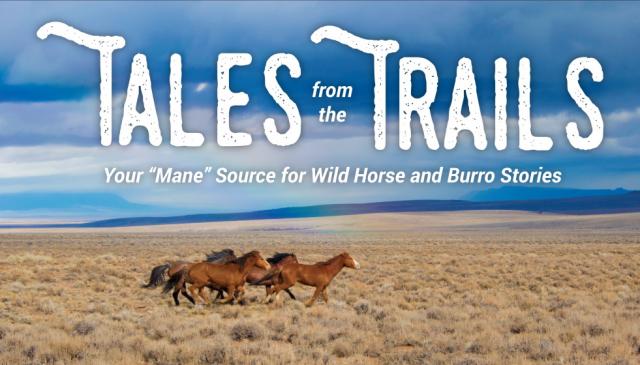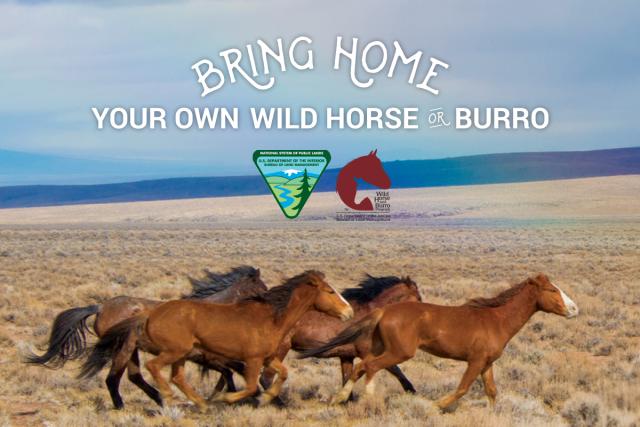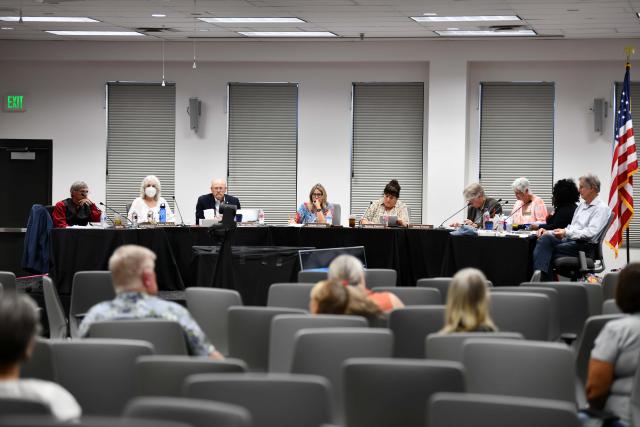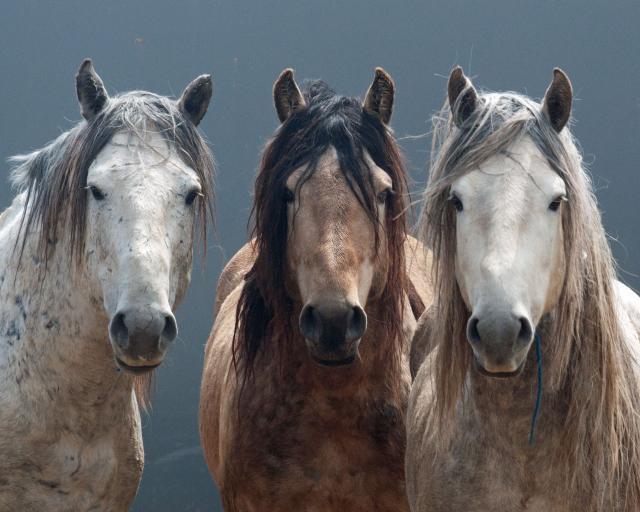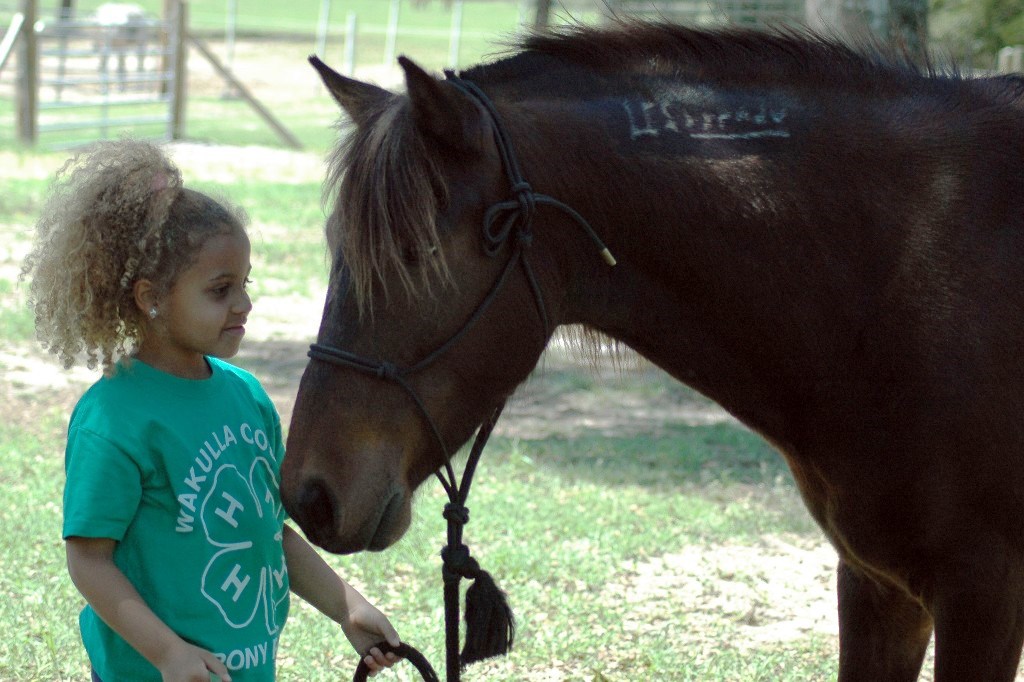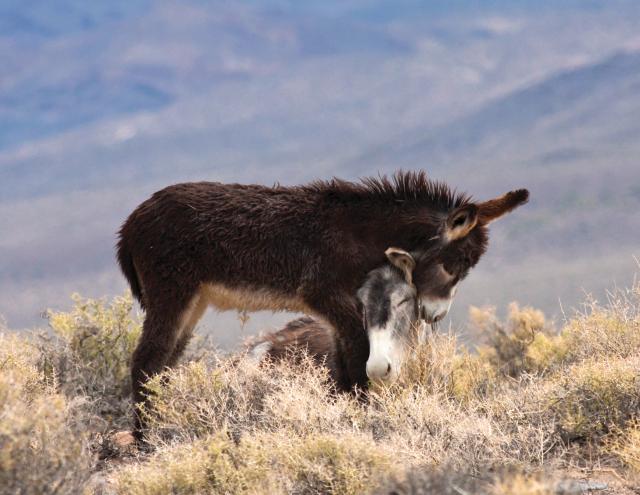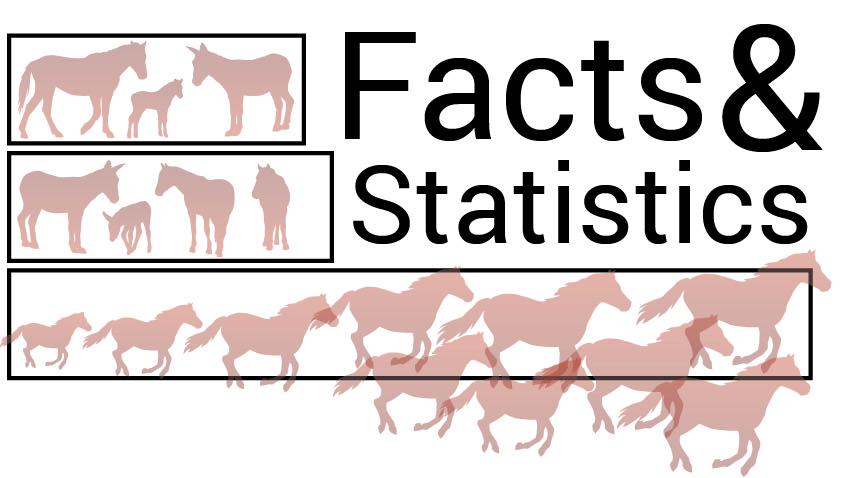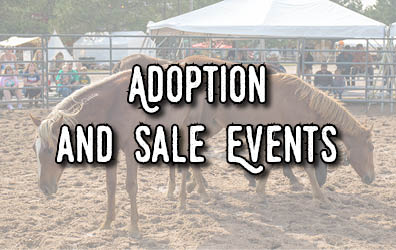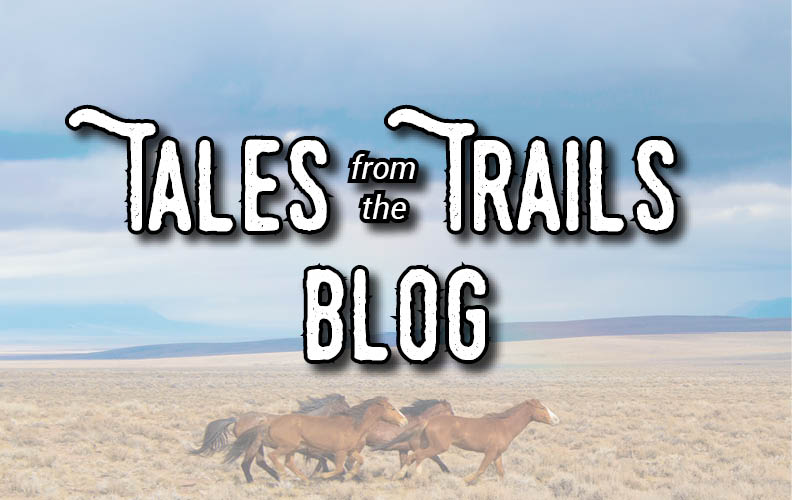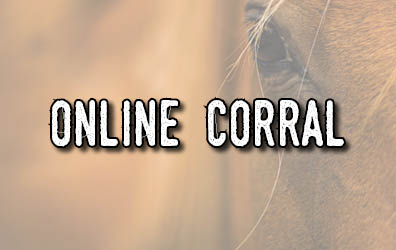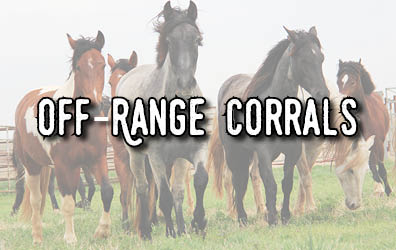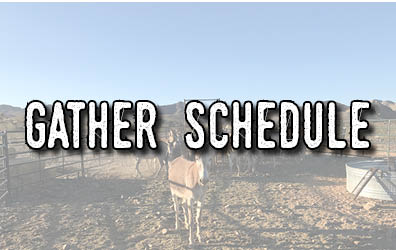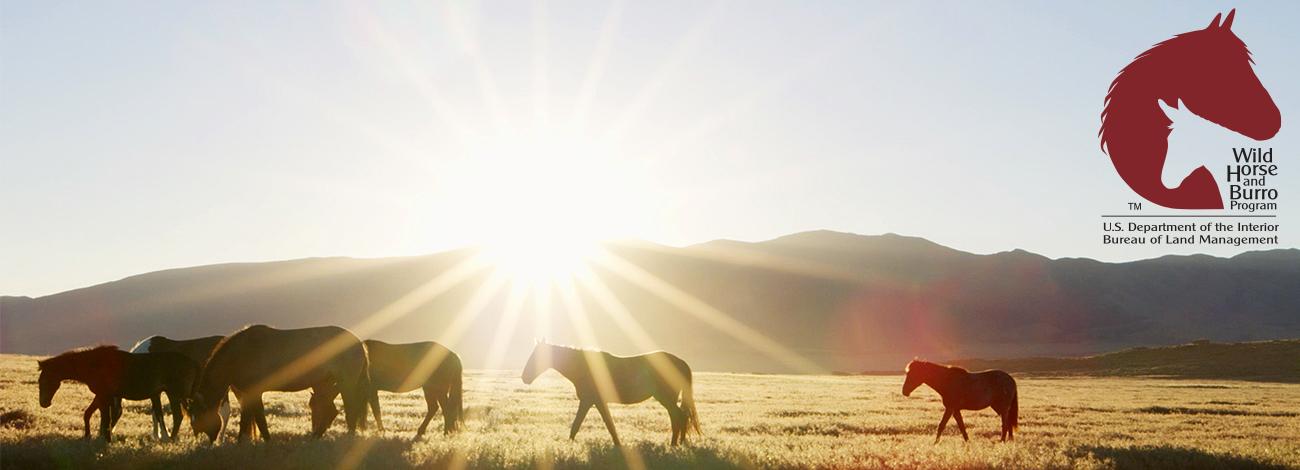
Wild Horse and Burro Program
The Bureau of Land Management manages and protects wild horses and burros on 25.5 million acres of public lands across 10 Western states as part of its mission to administer public lands for a variety of uses. The Wild Horse and Burro Program's goal is to manage healthy wild horses and burros on healthy public rangelands.
- About the Wild Horse and Burro Program
The Bureau of Land Management created the Wild Horse and Burro Program to implement the Wild-Free Roaming Horses and Burros Act (.pdf), passed by Congress in 1971. Broadly, the law declares wild horses and burros to be “living symbols of the historic and pioneer spirit of the West” and stipulates that the BLM and the U.S. Forest Service have the responsibility to manage and protect herds in their respective jurisdictions within areas where wild horses and burros were found roaming in 1971. Read more >>
Learn more about the Wild Horse and Burro Program:
- Wild Horse and Burro Blog
-
The Tales from the Trails blog pulls together wild horse and burro stories from across the Bureau of Land Management. These are stories about our work to manage and protect wild horse and burro herds on public lands, how animals are cared for in our off-range holding facilities and where they end up after they've been adopted to a good home. Read more >>
Read some recent featured stories:
- “Where did my horse come from?” BLM launches a new way for adopters, trainers and others to learn about their wild horses and burros
- Ever wondered what a wild horse adoption event really looks like?
- Successful adoptions and community engagement at Upper Yellowstone WHB Event
- BLM and Wyoming Honor Farm place 45 gentled animals
- Inmate-trained wild horse serves New York City police
- On-Range Herd Management
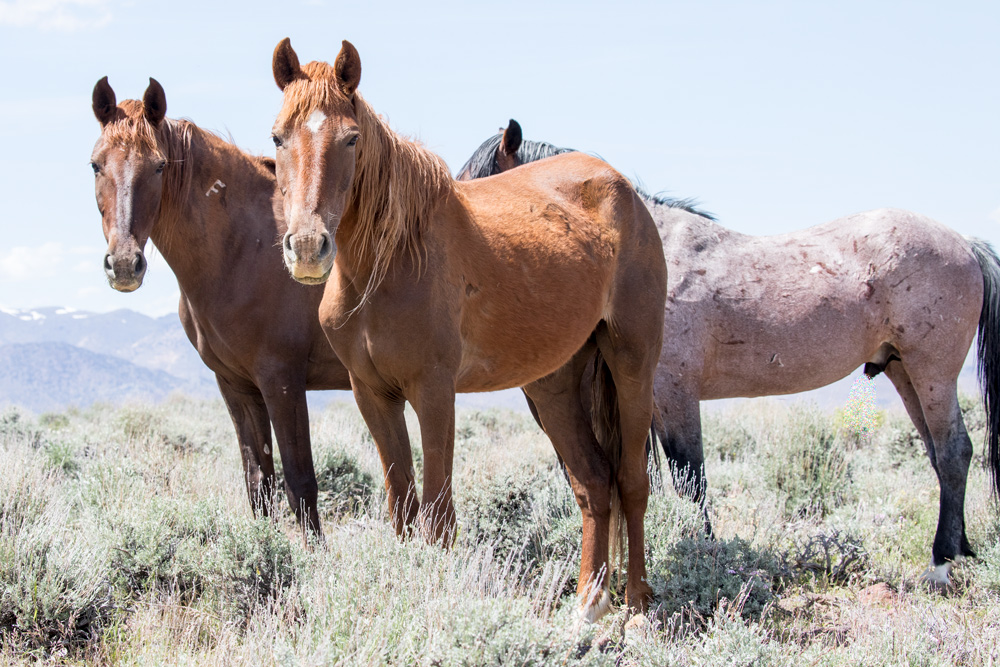
The BLM manages free-roaming wild horses and burros on public lands as part of its multiple-use mission, with the goal of supporting healthy wild horses and burros on healthy public rangelands. The BLM is responsible for determining and maintaining appropriate management levels (AML) for each herd and works to achieve that population target through a variety of management processes, including limiting reproduction in some herds through the use of birth control and gathers that remove excess animals from the range. Read more >>
Learn more about:
- Off-Range Adoptions and Sales
-
The BLM works to place excess animals into private care through its Adoption and Sales Programs as well as successful partnerships with organizations across the nation. Many have found it personally challenging and rewarding to adopt or purchase a wild horse or burro. It is a chance to care for, and then own, a part of America’s heritage. Read more >>
Learn more about:
- Get Involved
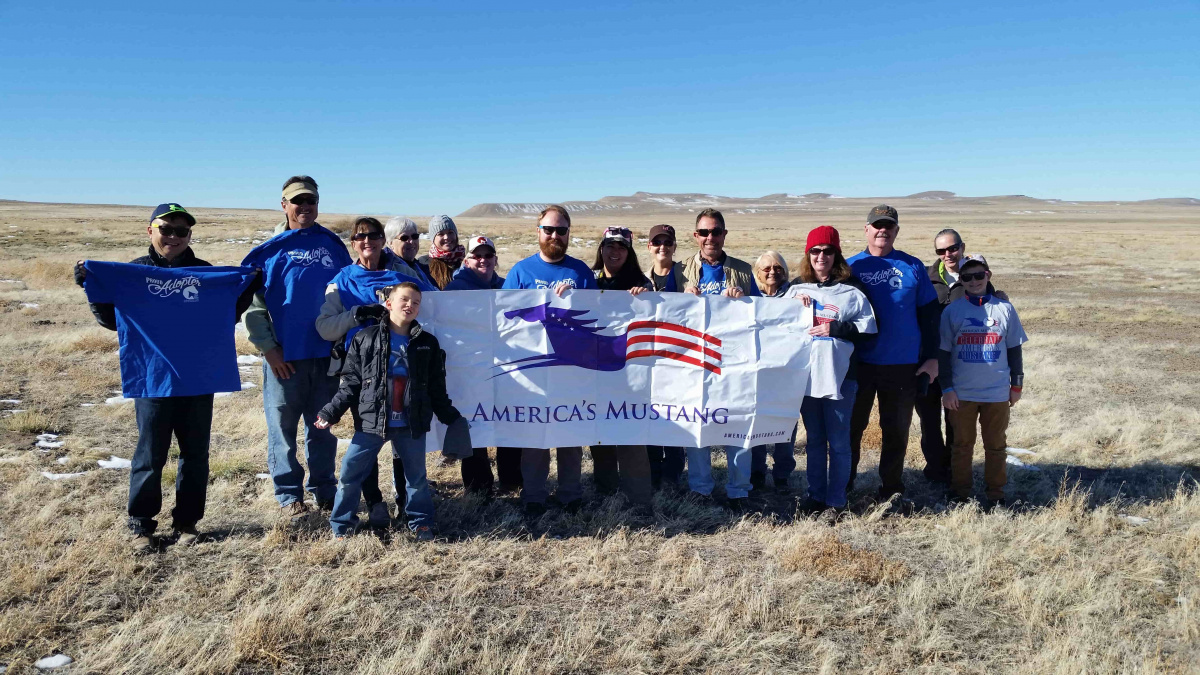
Managing, protecting, and finding homes for America’s wild horses and burro is challenging as it is rewarding. There are many opportunities to get involved in the management and protection of America’s wild horses and burros. The BLM relies on the hard work and determination of thousands of volunteers, partners, donors and contractors. Read more >>
Learn more about:
- Advisory Board
-
The National Wild Horse and Burro Advisory Board provides advice and recommendations to the BLM and the U.S. Forest Service as the agencies work to carry out their missions to manage and protect wild horses and burros on public lands. Read more >>
- Contact Us and Request Information
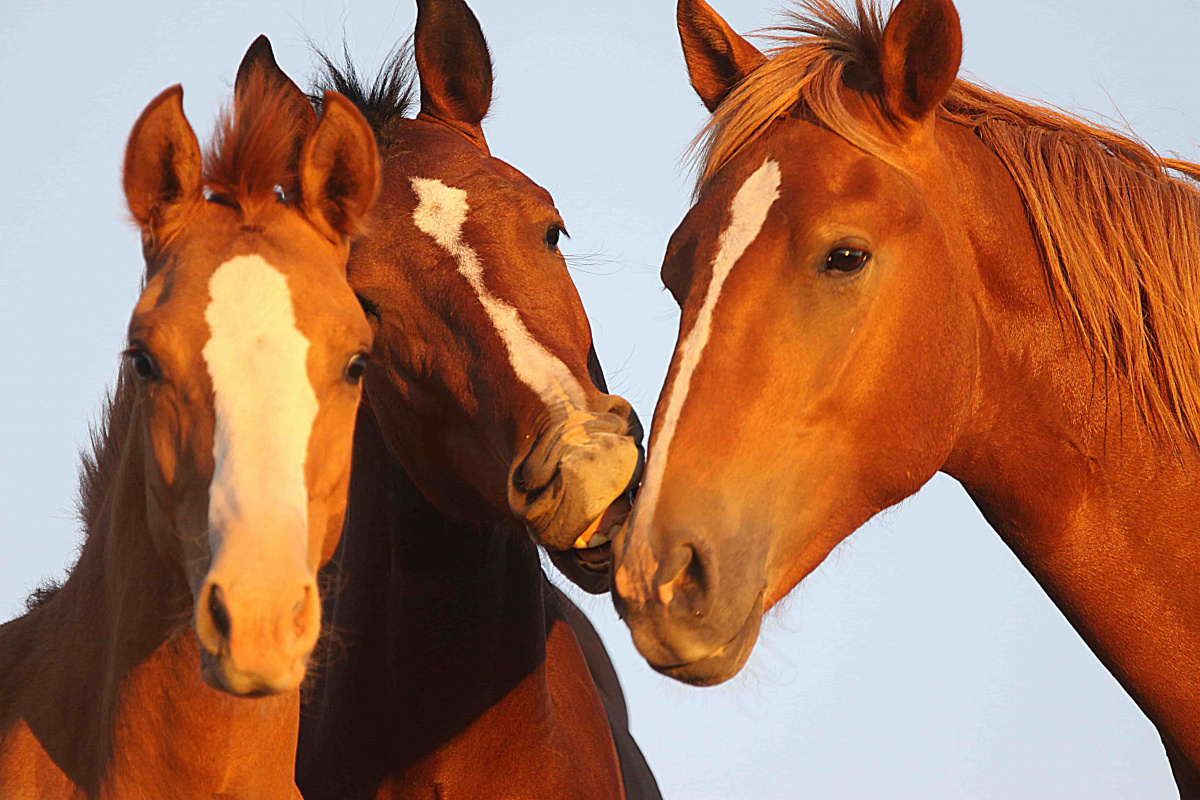
Do you have questions about the Wild Horse and Burro Program, or would you like to request program data? We recommend first checking our data page, which provides decades of population, adoption, removal and other historical data, as well as our Frequently Asked Questions page.
For additional questions or data requests, please contact the National Information Center prior to submitting a request under the Freedom of Information Act. We strive to provide substantive responses as quickly as possible and reduce the need to submit FOIA requests. FOIA requests undergo a legal process that can be time intensive and costly, which consumes agency resources and funding that otherwise can be used to help fulfill our mission of managing healthy wild horses and burros on healthy public lands.
Finally, please report any suspected inhumane treatment of wild horses and burros to the National Information Center.
Wild Horse and Burro National Information Center
866-4MUSTANGS (866-468-7826)
[email protected]Contact information for off-range corral facilities can be found on each facility webpage.
Contact your local BLM state, district or field office for specific questions regarding submitting an adoption application, obtaining title and more.
To submit a FOIA request, please visit the BLM's FOIA website.
Photo credit: John Wheland
“Where did my horse come from?”
BLM launches a new way for adopters, trainers and others to learn about their wild horses and burros
If you’ve ever adopted or purchased a wild horse or burro, you probably remember the moment you first saw them: the cautious eyes, the quiet strength, the sense of mystery. As you came to better know your wild horse or burro, you probably quickly learned their unique habits, funny traits and striking personalities. However, many owners of a wild horse or burro wonder: Where did my wild horse or burro come from? What was their journey before they came into my life?
Unless you were adopting directly from the BLM, finding those answers often meant emails, phone calls, and waiting. But now, you can find that information through a simple search in the new Wild Horse and Burro Program System Public Dashboard!
Recent Wild Horse and Burro News
- “Where did my horse come from?” BLM launches a new way for adopters, trainers and others to learn about their wild horses and burros
- Ever wondered what a wild horse adoption event really looks like?
- Successful adoptions and community engagement at Upper Yellowstone WHB Event
- BLM and Wyoming Honor Farm place 45 gentled animals
- Inmate-trained wild horse serves New York City police
Educational Resources
Find educational resources about wild horses and burros and their management, provided by the Bureau of Land Management.
Inhumane Treatment and Illegal Sale
The BLM provides information to equine sale and auction facilities regarding the illegal sale of untitled wild horses and burros. If you observe or have factual information that a federally protected (untitled) wild horse or wild burro has been treated inhumanely or illegally sold to slaughter, please contact the BLM at [email protected] or at 866-468-7826 with your name, contact information, and specific information about what you saw or know. If possible, please include the freeze mark and/or photos.

